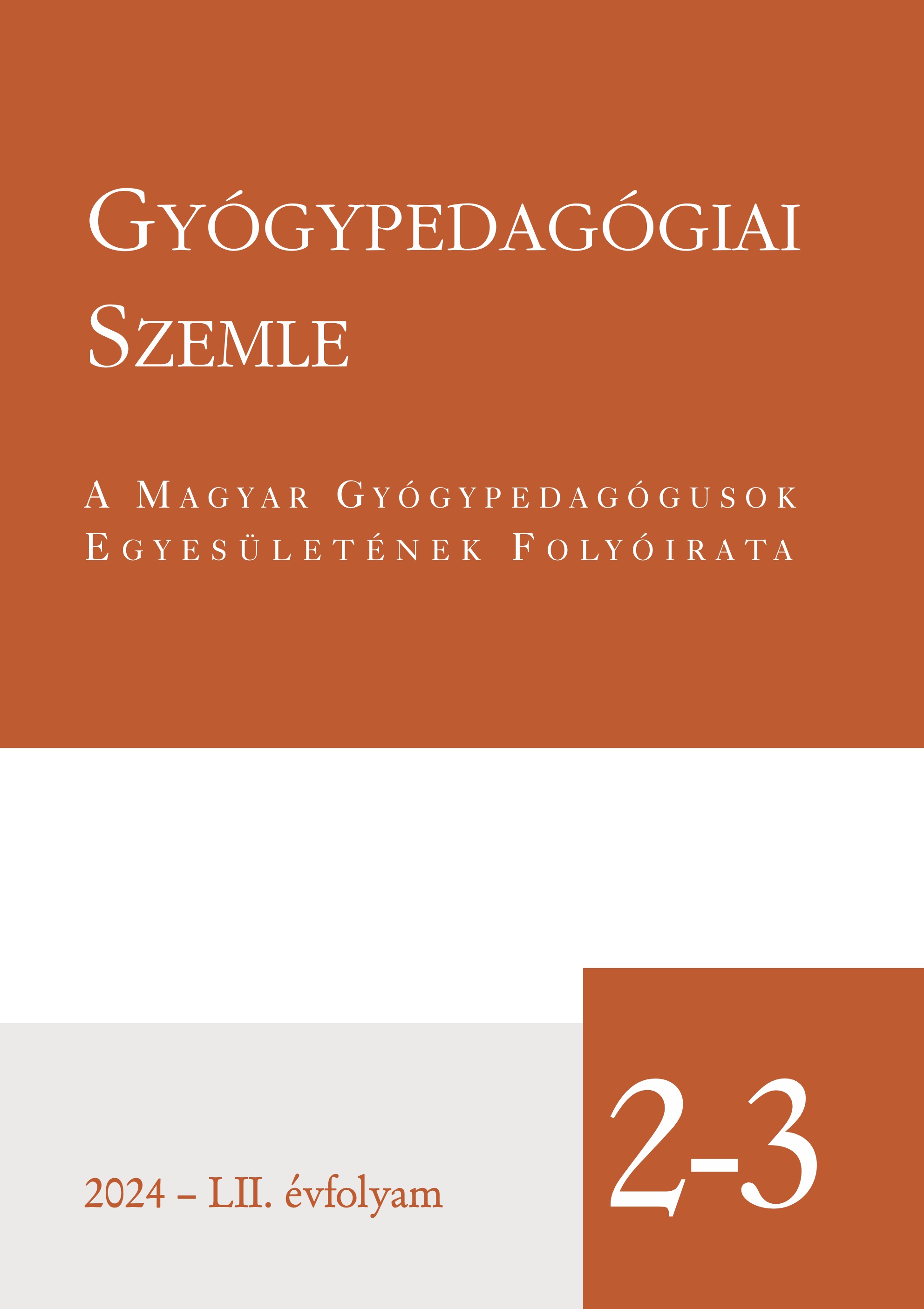Pragmatic abilities of children and adults with specific learning disorders — a summary of research methods and results in an under-researched area
DOI:
https://doi.org/10.52092/gyosze.2024.2-3.2Keywords:
pragmatic skills, specific learning disorder, children, adults, reviewAbstract
Background aims: Pragmatic competence is the ability to use language appropriately during social interactions. In addition to academic difficulties, children and adults with Specific Learning Disorder (SLD) often experience difficulties in this area, but until recent years, only a few studies have attempted to explore the impact of SLD on pragmatic competence in children, even less in adults. The aim of this study is to provide a systematic review of the international literature, to present the methods used in this research, as well as the difficulties and strengths revealed by them.
Methods: Based on the literature search conducted in September and October 2023 in the Scopus database and the Google Scholar search engine, 12 publications were selected that included standardised assessment tools.
Results: SLD adversely affects the development of pragmatic skills, impeding the selection and use of context-appropriate lexical units and speech acts. Inferring nonliteral meaning and the comprehension of implicitly expressed contents remain persistent difficulties in adulthood.
Conclusions: Since the inadequate functioning of pragmatic skills greatly affects everyday communication, performance at school and at work, it has a negative impact on the acceptance and inclusion of the people concerned, as well as on their overall quality of life.
Keywords: pragmatic skills, specific learning disorder, children, adults, review

